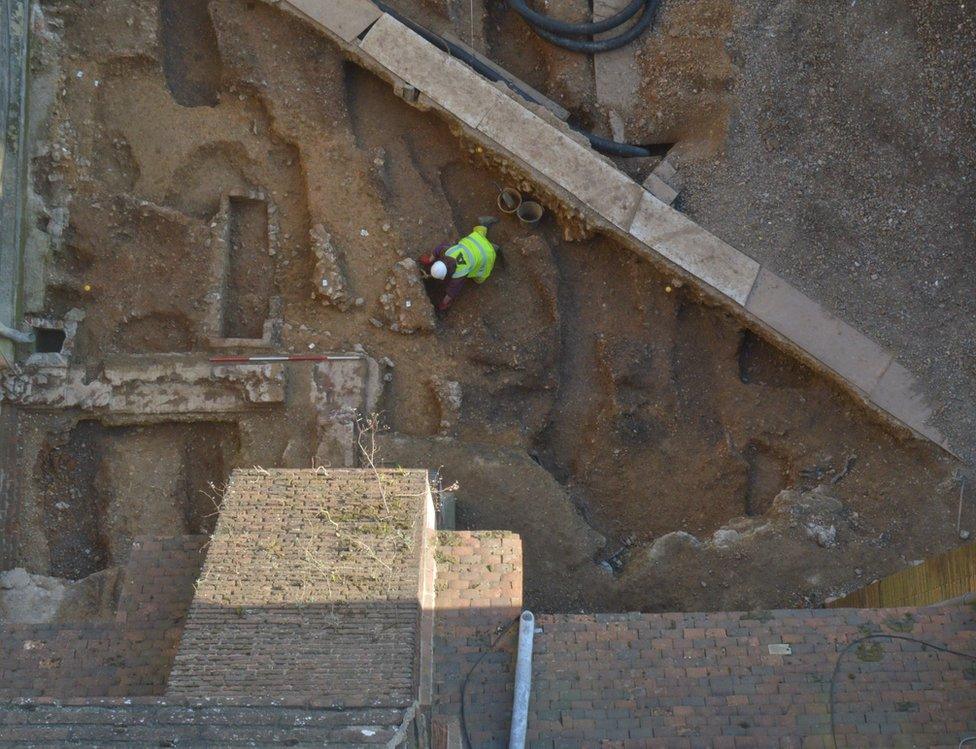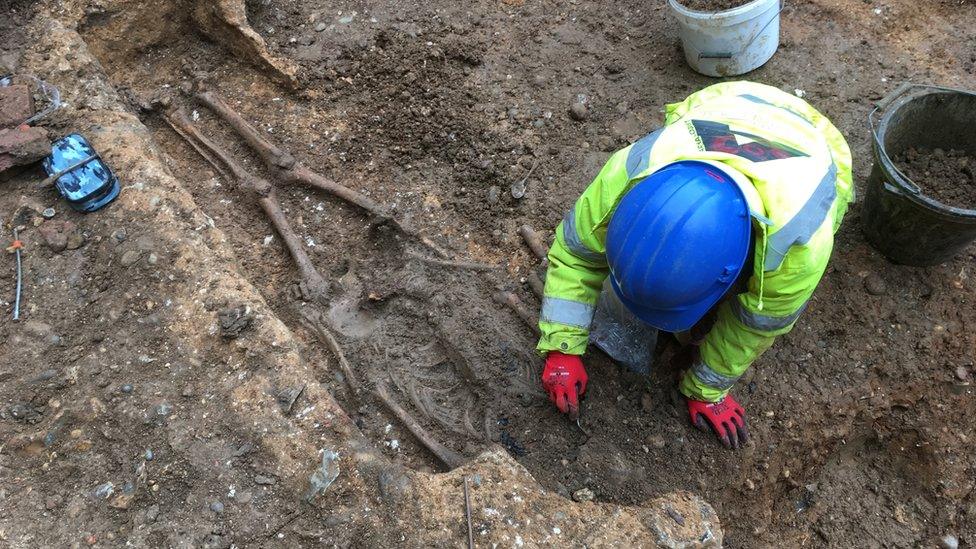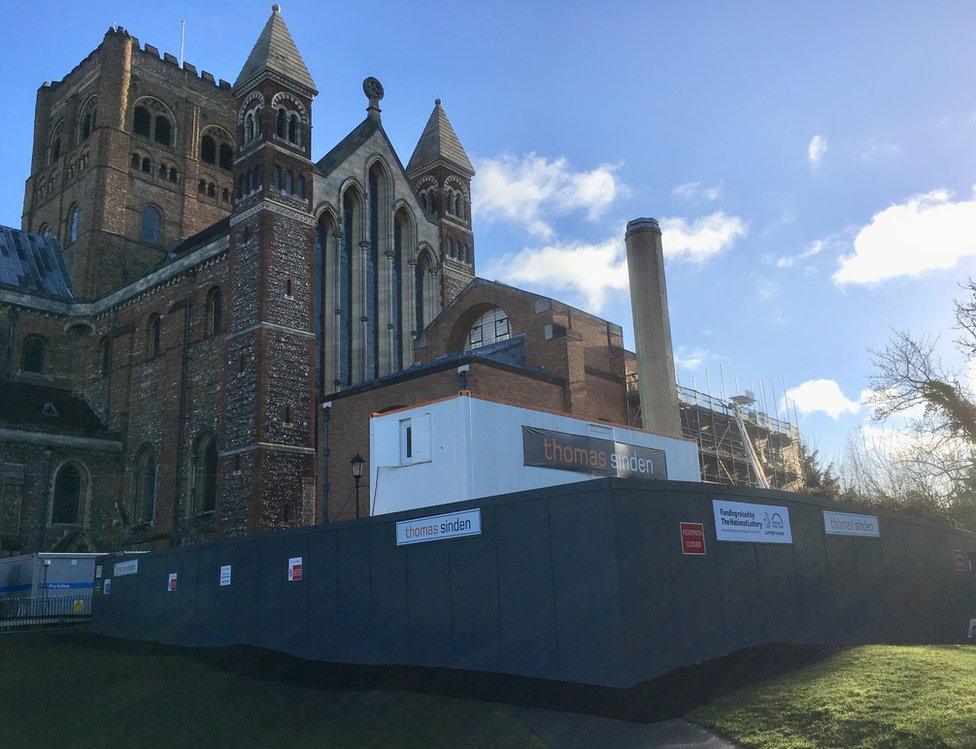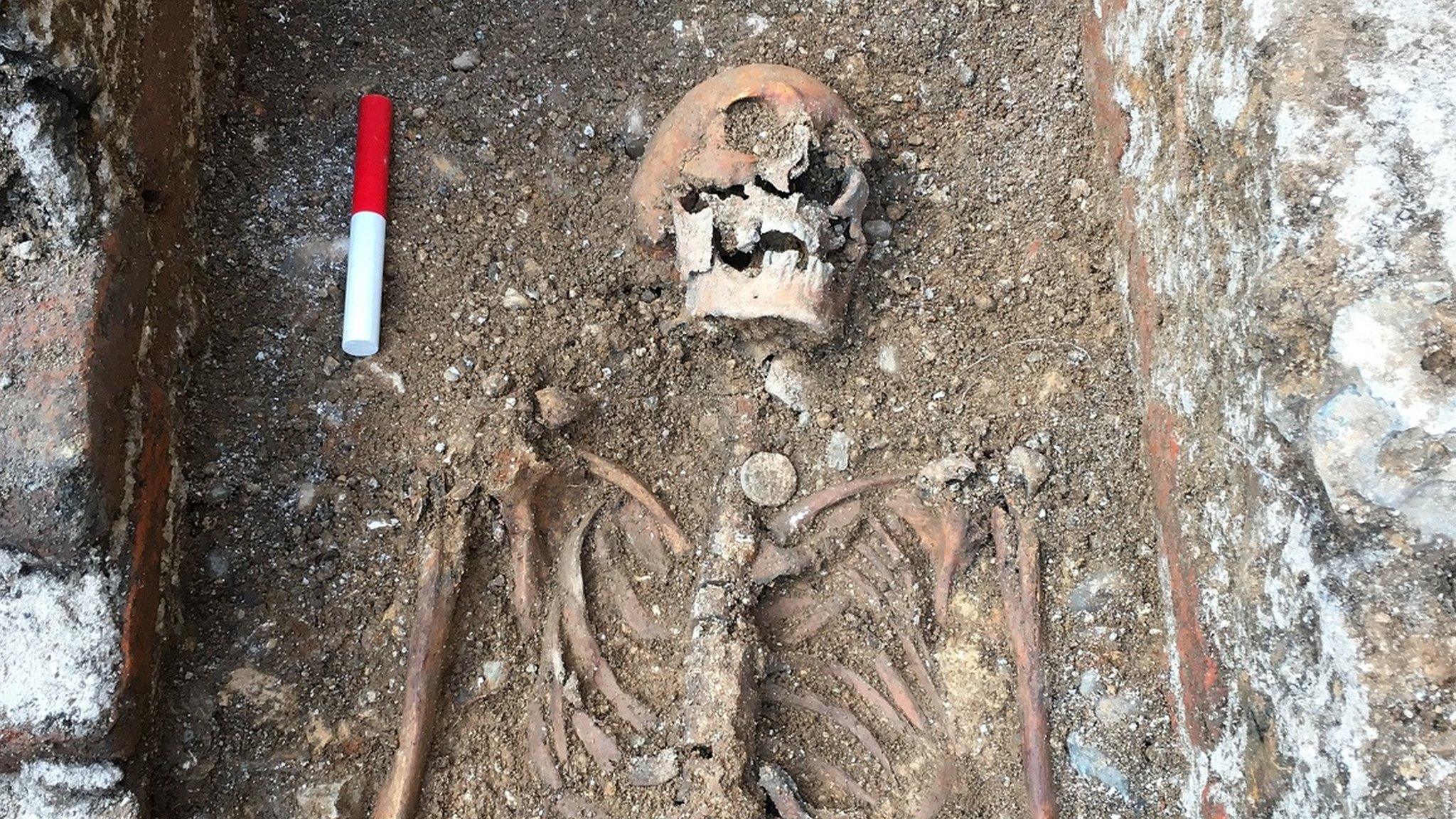St Albans Abbey 'one of England's early Norman cathedrals'
- Published

Remains of the original apse built in 1077 was unearthed during excavation work at St Albans Cathedral
St Albans Abbey has been confirmed as one of England's early Norman cathedrals after experts uncovered foundations of the early church.
Remains forming part of the early Norman abbey have been identified after foundations of the 11th Century church were revealed during excavation.
Site director Ross Lane said: "We knew it was probably there but this confirms it."
Other Norman cathedrals in the UK include Durham and Canterbury.
The Hertfordshire abbey is dedicated to Britain's first saint, St Alban - a citizen of Roman Verulamium - who was martyred by the Romans.
The first church at the site was probably a simple structure over St Alban's grave, making this the oldest site of continuous Christian worship in Britain.
The Canterbury Archaeological Trust has been excavating the site since August, ahead of the construction of a new visitor centre.

Archaeologists have also found about 20 graves of some of the original Abbey inhabitants from the 11th and 12th centuries
"[Our find shows] that it was and is an important site of premier status," Mr Lane said.
"One of our major aims was to confirm its presence and confirm the abbey was one of the early Norman cathedrals."
'100% archaeology'
Mr Lane said the team had also found the bodies of about 25 potential benefactors and inhabitants of the abbey from the 11th and 12th centuries.
"They are clustered close to the walls in tile-lined tombs. I think it was probably a great honour to be buried as close as possible to the blessed church," he said.
Further research will now try to establish who they were.

Excavation work has finished and the visitor centre build can begin
Work has now finished and the visitor centre build can begin. Mr Lane said it had been "fantastic".
"We've been able to do 100% of the archaeology, we've been able to excavate everything in the footprint of the new centre," he said.
"We've only gone about a metre down but everything's happened there - there's 1,000 years of history in a metre of earth."
The visitor centre is due to open in June 2019.
- Published24 December 2017

- Published7 December 2017
